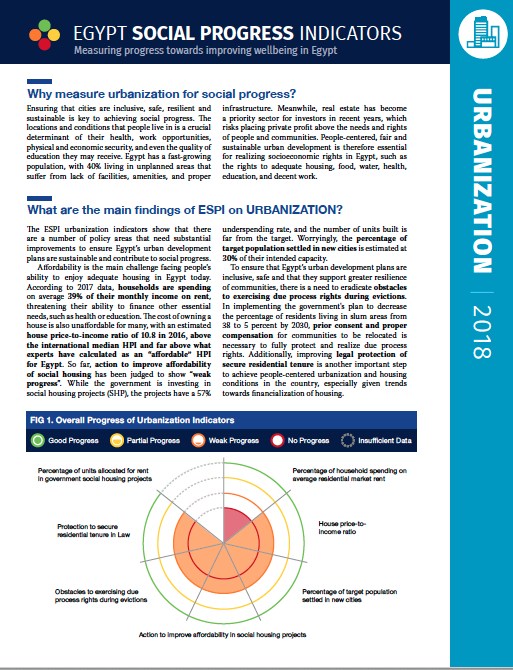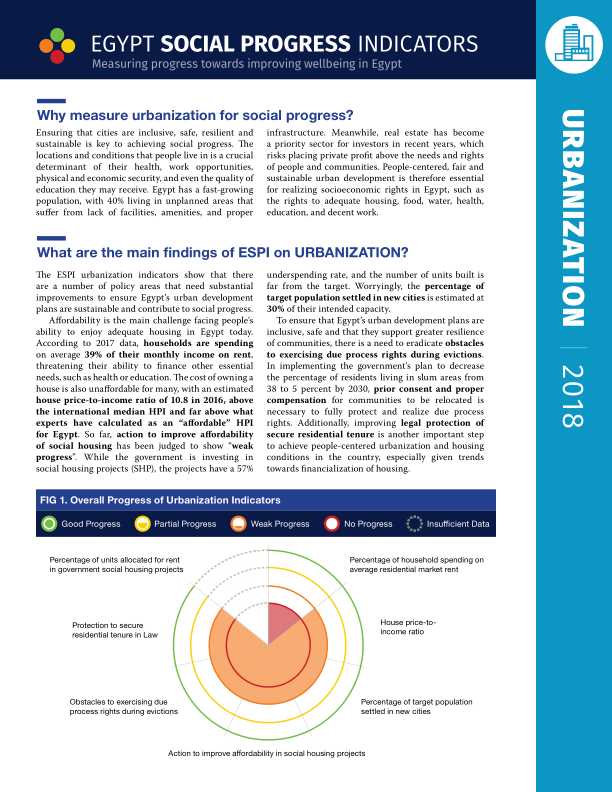This factsheet is available in PDF format here
The Egypt Social Progress Indicators (ESPI) on Urbanization demonstrate that there are a number of policy areas that need substantial improvements to ensure Egypt’s urban development plans are sustainable and contribute to social progress. Affordability is the main challenge facing people’s ability to enjoy adequate housing in Egypt today. According to 2017 data, households are spending on average 39% of their monthly income on rent, threatening their ability to finance other essential needs, such as health or education. The cost of owning a house is also unaffordable for many, with an estimated house price-to-income ratio of 10.8 in 2016, above the international median HPI and far above what experts have calculated as an “affordable” HPI for Egypt.
So far, action to improve affordability of social housing has been judged to show “weak progress”. While the government is investing in social housing projects (SHP), the projects have a 57% underspending rate, and the number of units built is far from the target. Worryingly, the percentage of target population settled in new cities is estimated at 30% of their intended capacity.
The data showcased in the factsheet was derived with ESPI (Egypt Social Progress Indicators), a new metric developed jointly by CESR and its partners in Egypt, offering a more multidimensional view of the socioeconomic situation in Egypt and its human impacts. Urbanization is among six topics covered, including health; education; labor; food, water, and agricultural land; and economic policy. It uses a four-color scale, to score progress against benchmarks informed by national and international development targets, as well as human rights commitments, including recommendations from human rights mechanisms which Egypt has taken on in recent years.

